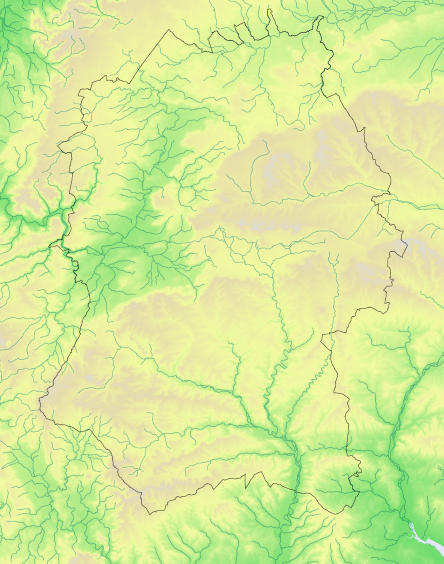Atlas species lists
- Breeding distribution 1995–2000
- Summer abundance 1995–2000
- Winter distribution 1995–2000
- Winter abundance 1995–2000
- Breeding distribution 2007–2012
- Summer abundance 2007–2012
- Winter distribution 2007–2012
- Winter abundance 2007–2012
- Breeding distribution change
- Summer abundance change
- Winter distribution change
- Winter abundance change
More Scaup maps
- Breeding distribution 1995–2000
- Summer abundance 1995–2000
- Winter distribution 1995–2000
- Winter abundance 1995–2000
- Breeding distribution 2007–2012
- Summer abundance 2007–2012
- Winter distribution 2007–2012
- Winter abundance 2007–2012
- Breeding distribution change
- Summer abundance change
- Winter distribution change
- Winter abundance change
More maps for this atlas
Map explanation
This map shows the changes which occurred in the winter distribution of the species between 1995-2000 and 2007-2012, but only in the limited selection of tetrads that were surveyed in winter for Birds of Wiltshire (Wiltshire Ornithological Society 2007).
Key
Status
Nos tetrads

Absent to present
3
1%

Present in both
0
0%

Present to absent
0
0%

Not surveyed
Scaups have a low-arctic circumpolar breeding distribution, moving in winter mainly to the western Baltic and the Netherlands, with smaller numbers in the Caspian and Black Seas and in northern France, Great Britain and Ireland, mostly around the coasts but with a scattering of inland records.
In Wiltshire there were six records of singletons in the 19th century, then, after a gap between 1896 and 1944, 49 records involving a total of 64 birds between 1945 and 2014. Most of the records were of singletons that stayed for a week or less, mainly between November and February, though 11 records were between March and June some of which involved stays of three months or more. The latest stayer was an immature male which arrived at the Cotswold Water Park (CWP) on 5 April 1994 and remained until 22 July. The largest number of records were from the CWP (17 records), followed by Coate Water (eight) and Corsham Lake (seven).
References
The following references are used throughout these species accounts, in the abbreviated form given in quotation marks:
“1968-72 Breeding Atlas” – Sharrack, J.T.R. 1976: The Atlas of Breeding Birds in Britain and Ireland. T. & A. Poyser
“1981-84 Winter Atlas” – Lack, P.C. 1986: The Atlas of Wintering Birds in Britain and Ireland. T. & A. Poyser
“1988-91 Breeding Atlas” – Gibbons, D.W., Reid, J.B. & Chapman, R.A. 1993: The New Atlas of Breeding Birds in Britain and Ireland 1988-91. T. & A. Poyser
“Birds of Wiltshire” – Ferguson-Lees, I.J. et al. 2007 : Birds of Wiltshire, published by the tetrad atlas group of the Wiltshire Ornithological Society after mapping fieldwork 1995-2000. Wiltshire Ornithological Society.
“Bird Atlas 2007-2011” – Balmer, D.E., Gillings, S., Caffrey, B.J., Swann, R.L., Downie, I.S. and Fuller, R.J. 2013: Bird Atlas 2007-2011: the Breeding and Wintering Birds of Britain and Ireland
“WTA2” – ("Wiltshire Tetrad Atlas 2 ") the present electronic publication, bringing together the Wiltshire data from “Birds of Wiltshire” and “Bird Atlas 2007-11”, together with data from further fieldwork carried out in 2011 and 2012.
"Hobby" - the annual bird report of the Wiltshire Ornithological Society.

